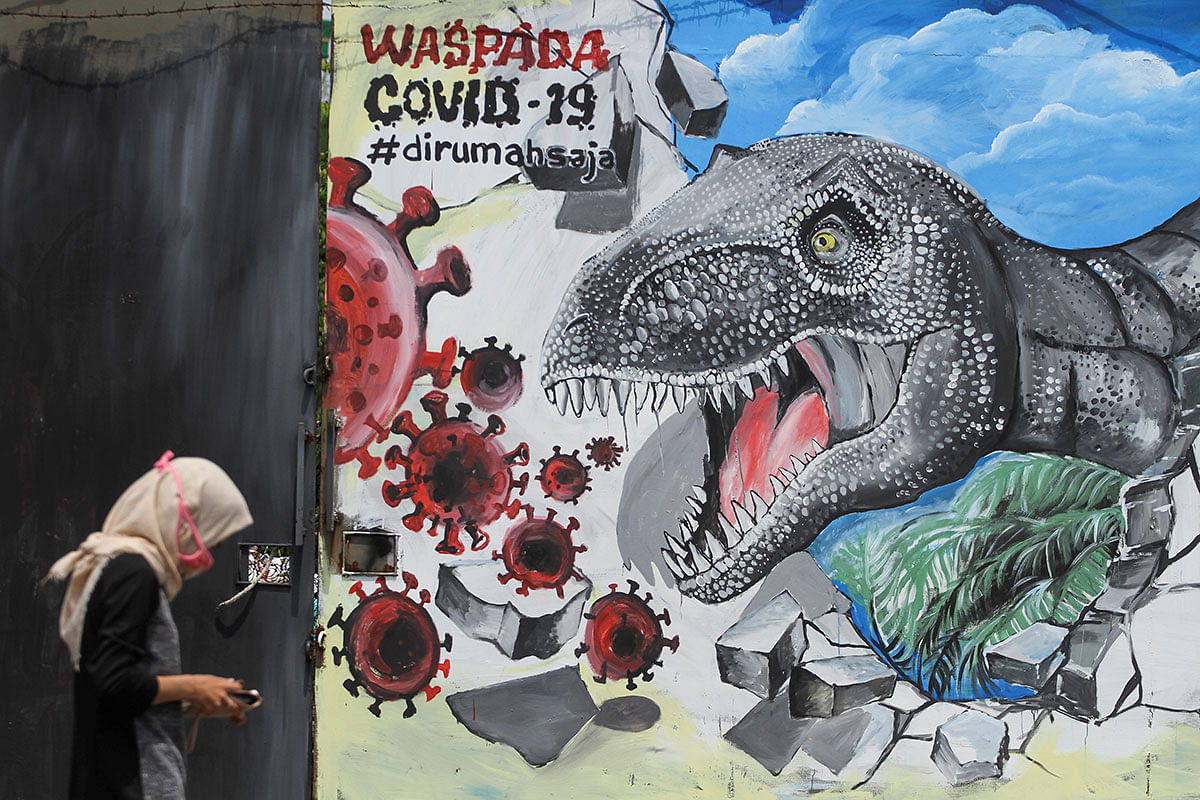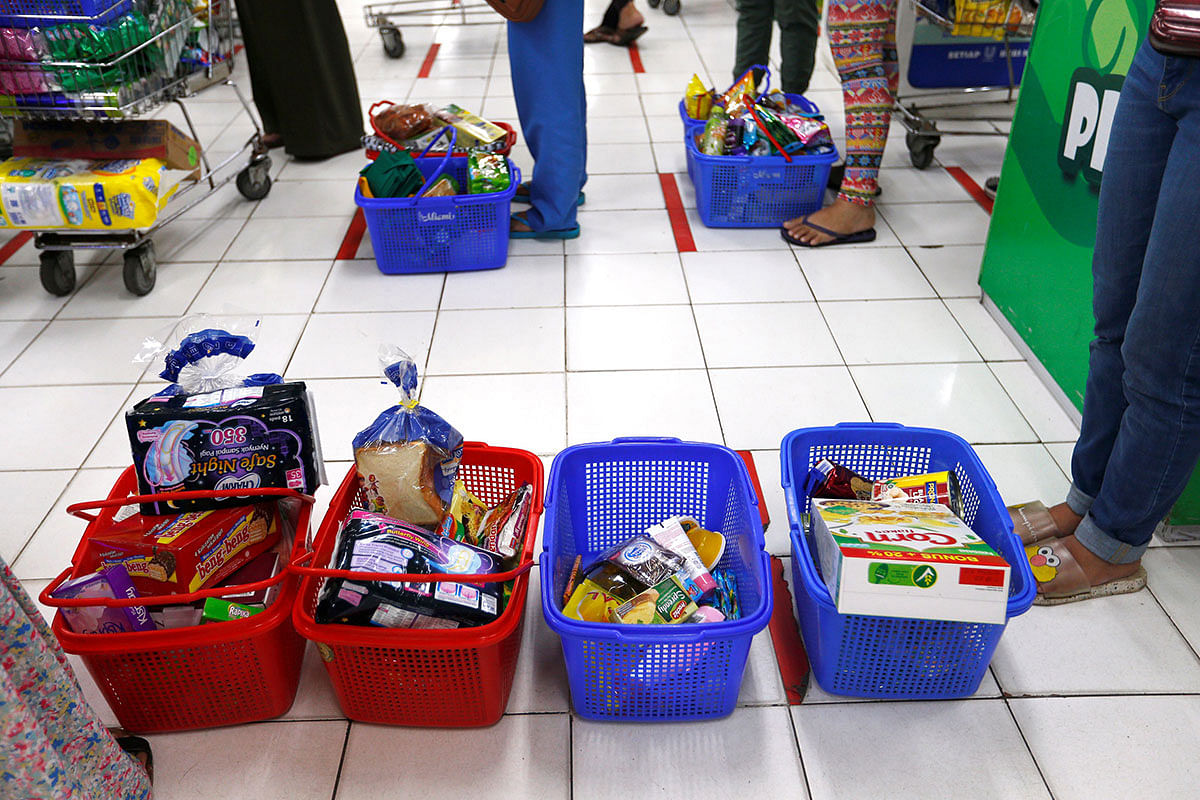
After two weeks of being cooped up working from home, I ventured out to get some fresh air on March 26 - and, perhaps, scour the shops for some surgical face masks too.
The streets were quiet. The bumper-to-bumper traffic and incessant honking were gone. Even the pushcart bapak (uncle) selling my favourite mie bakso (noodle soup) was nowhere to be found.
This is not the Jakarta I know. Where are its 10 million residents? The Indonesian capital has been under a two-week state of emergency since March 20. Public transport hours have been shortened, schools closed, and tourist spots and entertainment centres - from spas to massage parlours to game arcades - shut.
In the heart of the city, Plaza Indonesia, the upscale mall across from the office, has rolled down its shutters temporarily. Scratch those lunch appointments and movie outings with friends.
The adjacent Grand Indonesia mall - which incidentally is my favourite hangout - now closes earlier. Trying my luck, I hopped into a pharmacy. But masks and hand sanitisers were sold out long ago. I went to a supermarket. There were still shoppers but no more long queues.
Outside, while standing near the iconic Selamat Datang, or Welcome, monument, I saw a big truck approaching. Before I could heed the warnings of "Keep off the pavement" booming from a loudhailer on the vehicle, a jet of disinfectant had splashed all over my face and body.
Public order officials were on their rounds to sanitise the polluted streets. Thank you, I must also be so clean now.


But I wonder when Jakarta - and Indonesia, as well as the rest of the world - will be cleaned up and free of this dastardly coronavirus.
As of Wednesday (April 1), 157 people have died and 1,677 have been infected in Indonesia. Most of the cases are in the capital. The sub-district where I live on the outskirts of Jakarta has been designated as a red zone, with nine confirmed cases and two deaths.
Certainly, the figures will keep rising. As a journalist monitoring the numbers closely every day, I fear the worst is yet to come. People are saying Indonesia will become the next Iran or Italy, with a massive outbreak.
It makes me worried. I have been nursing a slight flu. I had never been too bothered previously, but now a sore throat, a cough or a sneeze makes me think of death. So now, I eat less fried food and chilli, pop more multivitamins and do some training with weights.
A distant nephew in Palembang, in South Sumatra, died a few weeks ago from a lung infection. I asked my mother if he had Covid-19. Nobody knew. I was hysterical as my mother lives close to him.
Angry, fearful and also helpless, I yelled at her.
"It could be Covid-19, but it was undetected!"
I felt frustrated that the government has been too slow in responding to the health crisis.
I pleaded with my father to check if my mother had developed symptoms, and added: "This is the time when it does not matter how much money you have, Pa.

The declaration of emergency caught me off guard. Some Jakartans have stocked up on rice, meat and medicine. But I don't even own a refrigerator.
Fearing the situation might worsen, I ordered a refrigerator online, but the apartment management has banned non-residents from entering the premises. I tried buying food from a restaurant but was spooked after seeing a delivery man cough near the kitchen. I could buy food online, as ride-hailing companies such as Gojek or Grab are still operating, but cooking at home might be the safest bet.
I should not complain. In the danger zone, I still have a place to call home. The same cannot be said for Jakarta's poor and homeless, left exposed to the deadly virus.
Here, in this shoebox apartment, I feel safe, for now.
During this period, the hardest time in our lives, I have learnt to be more grateful for things I have taken for granted, like enjoying time outdoors to watch the sunrise

